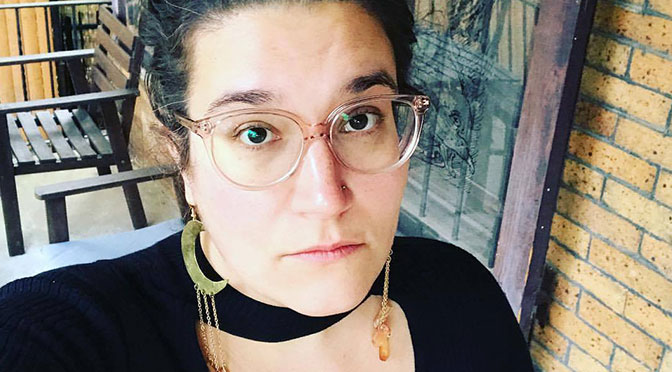Have you ever read a book that simultaneously aroused and made you shudder? A book that blurred the boundaries of your body and asked: What is real? What is possible? And most importantly: Who does your body actually belong to?
Carmen Maria Machado, with her short story collection “Her Body and Other Parties” (2017), has created exactly these spaces. Spaces where queer eroticism meets uncanny elements, and where our notions of desire, corporeality, and identity are radically reimagined.
The Magic of the Unspoken
What makes Machado so special: She speaks the unspeakable. In a society that still marginalizes queer bodies and queer desire, she creates room for our complex, contradictory, sometimes even disturbing sexual truths.
In “The Husband Stitch” – my personal favorite story in the collection – Machado interweaves urban legends with the narrative of a young woman whose neck is encircled by a mysterious green ribbon. The eroticism in this story is electrifying and direct, yet permeated by an eerie tension: What happens if her husband unties the ribbon he so eagerly grasps for?
The story confronts us with the frightening reality that women’s bodies are often viewed as property of others – even in intimate relationships. The “husband stitch” itself refers to an extra stitch sometimes given by doctors after childbirth, supposedly to tighten the vagina for the husband’s sexual pleasure.
Bodies as Battlefields and Pleasure Gardens Simultaneously
What can we, as authors of erotic literature, learn from Machado? So damn much!
- We can understand the body as a political space. Machado’s work reminds us that our bodies are never neutral. They are sites where power structures, prejudices, and liberation struggles are fought out. Eroticism can and should acknowledge this dimension.
- We can play with genres. Why must erotic literature stay in one drawer? Machado blends horror, science fiction, fantasy, and fairy tales with explicit sexual portrayals. This mixture allows us to go beyond the conventional “tab A into slot B” mechanics and instead delve into deeper layers of desire.
- We should celebrate queer experiences. Machado’s characters move beyond heteronormative boundaries. They desire in complex, contradictory, and multifaceted ways. As writers, we can learn from this complexity and create erotic literature that reflects the diversity of human sexuality and identity.
- We can explore the uncanniness of our bodies. Bodies are strange. They change, they surprise us, they escape our control. Instead of idealizing perfect, smooth bodies, we can explore the existential uncanniness of embodiment.
The Poetry of Flesh
Machado’s prose is bold not only in its themes but also in its language. She combines poetic imagery with raw, direct sexual description. This contrast creates an electrifying tension.
In “Inventory,” a narrator lists her sexual encounters while a plague decimates the world around her. The clinical sobriety of the enumeration contrasts with the intimacy of the described acts and the apocalyptic backdrop. A lesson for us all: Erotic literature can thrive through contrasts.
The Liberation of Erotic Writing
What excites me most about Machado’s work: She liberates erotic literature from its conventional shackles. She shows us that erotic writing doesn’t just have to serve arousal (although it definitely can do that too!), but can also be a tool to explore profound questions:
- How do we experience our bodies in a world that wants to control them?
- How do we navigate desire that is sometimes interwoven with danger?
- How can we belong to ourselves in a society that wants to dispossess us?
Whether you write erotic literature yourself or simply love reading it: Machado’s work encourages us to be braver. Not just in what we portray, but also in how we do it.
The next time you sit in front of a blank page, remember: Your erotic story can simultaneously be a horror film, a political manifesto, and a love song. Dare to break boundaries – just like Carmen Maria Machado does.
And now: Which boundaries will YOU transcend in your next text?

